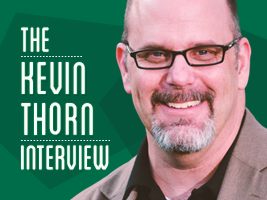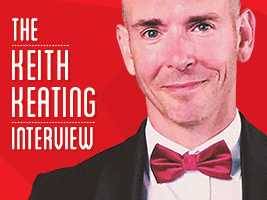
SOLUTIONING: A TALE OF THREE COMPANIES
“But what is it that you will do? I’m the one who’s going to give you all the content!”

“But what is it that you will do? I’m the one who’s going to give you all the content!”

L&D folks are expected to (rightly so!) be updated on the principles behind their practice. But many are so maxed out on their time that they have nary a minute to spend on self-development. Added to this is the complexity of studying something like learning science (especially true for those who do not have a scientific or technical background). So, if you’re feeling overwhelmed and are not yet ready to bury yourself under research papers, here are 3 quick ways to get started.

The way vendors prepare proposals, even the topics they address, are very varied. Then how do you compare effectively and see if a vendor has given you a thoughtful proposal, with an actual solution?

As human beings, we’re wired to make decisions from the gut. But if we are part of any profession that requires making decisions (cue: nearly every profession), we have a responsibility to inform ourselves of the evidence-based practices in our field, and use that understanding to make decisions. This article explores when we should be deep diving into the principles, and when it’s okay to use our intuition for decision making.

This is about how we, the training industry, are being unwittingly used by unscrupulous corporates to enslave workers.

In this exclusive interview with Learnnovators, Stella Collins shares her insights on how learning really works in the human brain. She explains her views on the significance of having a better understanding of ‘brain science’ and mastering ways to bring that into learning design. Stella’s recommendation to give people the ‘skills of learning’ first before we ask them to self-direct their learning, is highly thought-provoking.

In this exclusive interview with Learnnovators, Nick Shackleton Jones shares his insights on how people really learn. He explains his views on the difference between education and learning in the context of our workplaces. Nick’s recommendation to provide relevant resources, accessible at the point of need to our people at work, so as to ensure that ‘less learning’ will take place, is highly thought-provoking.

In this exclusive interview with Learnnovators, John Hinchliffe shares his insights on the changing nature of workplace learning in relation to the world of work.

In this exclusive interview with Learnnovators, Dr. Stella Lee shares her insights on the changing nature of workplace learning in relation to technological innovations such as Artificial Intelligence and robotics.

“The days of looking for people with “deep levels of experience” are over – now we have to look for people with skills, ambition, and the ability to learn.”
An excerpt from this blog post by Josh Bersin, Global Industry Analyst and CEO of The Josh Bersin Company

In this exclusive interview with Learnnovators, Kevin Thorn shares his insights on the changing nature of e-learning for workplace training.

In this exclusive interview with Learnnovators, Keith Keating shares his insights on the changing nature of workplace learning from the perspective of design thinking.